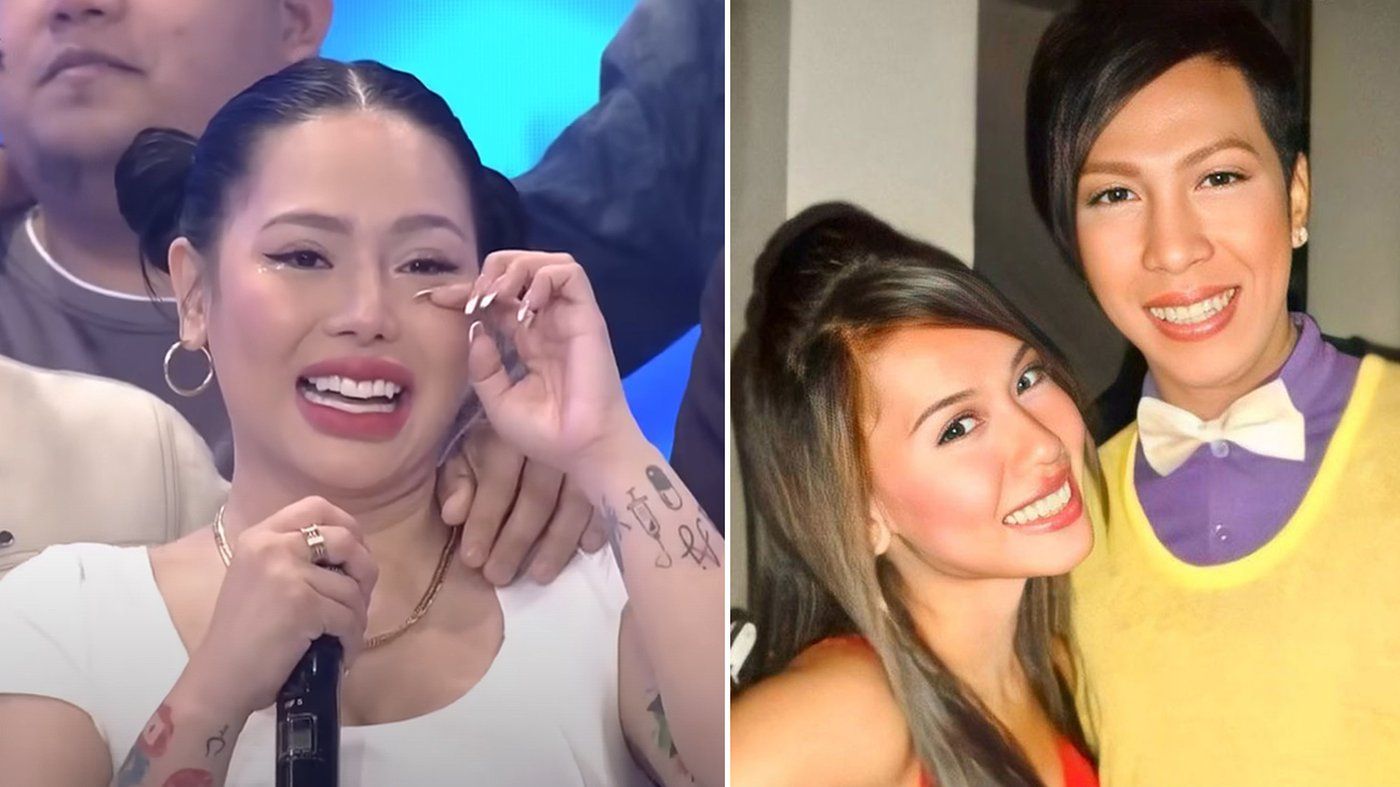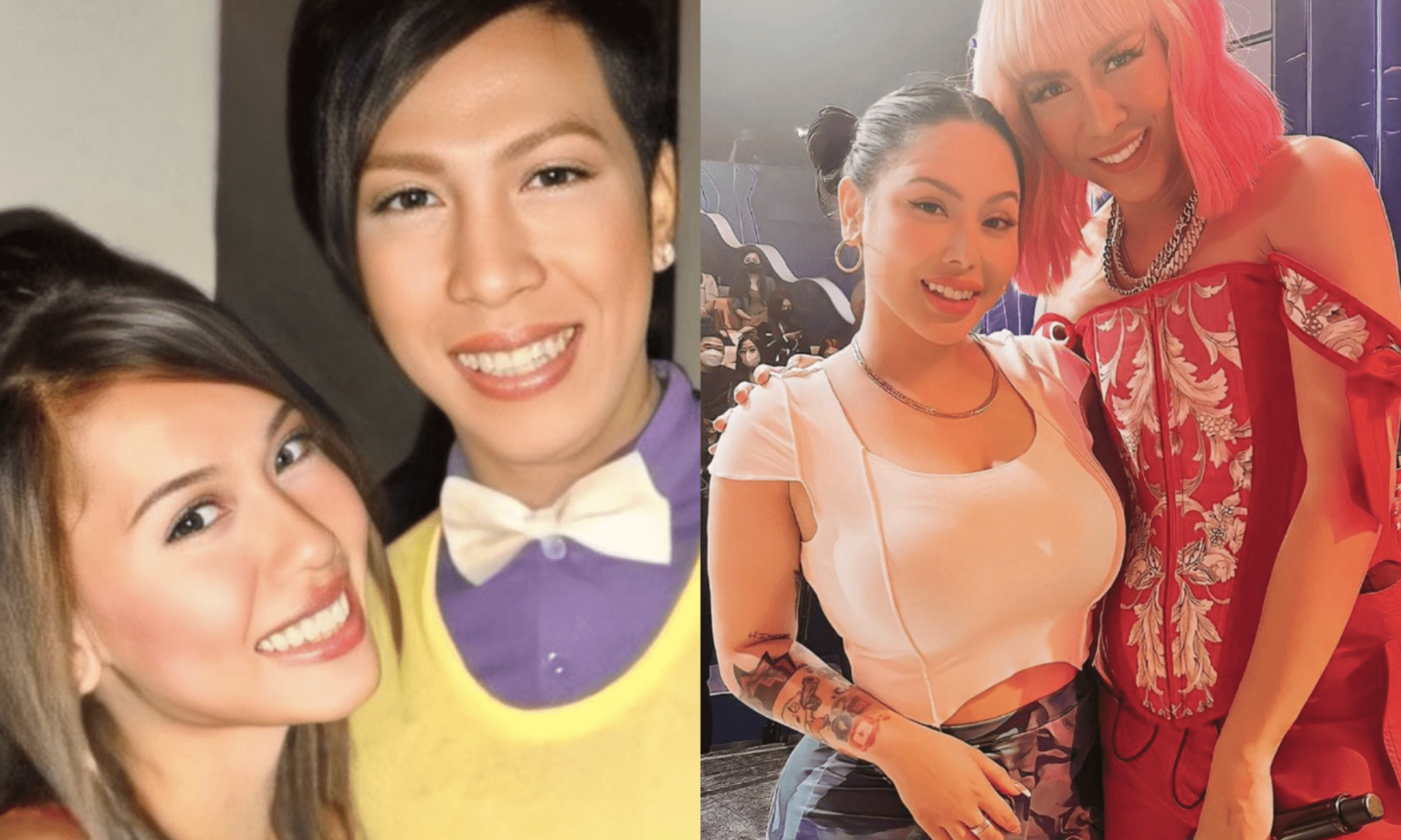Toni Fowler Before Plastic Surgery No Surgery refers to images and information circulating online that allegedly depict the TV host and social media personality, Toni Fowler, prior to cosmetic procedures.
The discussion around Toni Fowler before plastic surgery gained significant attention, sparking debates about the influence of social media on body image and the societal norms surrounding beauty. It highlights the potential impact of cosmetic surgery on one's physical appearance and raises questions about authenticity and transparency in media.
This article delves into the authenticity and circulation of these images, explores the ethical and social implications, and examines the impact on body image and self-esteem in the realm of social media.
Toni Fowler Before Plastic Surgery No Surgery
The discussion surrounding Toni Fowler's appearance before plastic surgery encompasses various essential aspects that warrant exploration. These aspects touch upon the intricacies of media representation, body image, and societal norms, making it a topic worthy of examination.
- Authenticity
- Transparency
- Social media influence
- Body image
- Self-esteem
- Media ethics
- Beauty standards
- Self-acceptance
- Mental health
- Informed decision-making
These aspects are interconnected and play a significant role in shaping our perceptions of beauty, self-worth, and the choices we make regarding our bodies. By examining these aspects, we can gain a deeper understanding of the complexities surrounding Toni Fowler's case and its broader implications for individuals and society as a whole.
| Name | Toni Fowler |
|---|---|
| Occupation | TV host and social media personality |
| Date of Birth | March 14, 1991 |
| Place of Birth | Iloilo City, Philippines |
| Known for | Hosting the reality show "Pinoy Big Brother" and her outspoken personality on social media |
Authenticity
In the context of "Toni Fowler Before Plastic Surgery No Surgery," authenticity refers to the genuineness and honesty in presenting information and images. It involves being transparent about any alterations or enhancements made to one's appearance, allowing for a realistic and accurate representation of oneself.
Authenticity is a critical component of "Toni Fowler Before Plastic Surgery No Surgery" because it fosters trust and credibility with the audience. When individuals share unedited or unaltered images, they demonstrate a willingness to embrace their natural appearance and challenge unrealistic beauty standards. This transparency empowers others to feel more comfortable in their own skin and promotes a culture of self-acceptance.
For example, if Toni Fowler were to she had undergone plastic surgery, it would enhance the authenticity of her public image. By being transparent about her choices, she would challenge the notion that natural beauty is the only acceptable standard and encourage others to embrace their unique features.
Understanding the connection between authenticity and "Toni Fowler Before Plastic Surgery No Surgery" has practical applications in various fields. In the media industry, it emphasizes the importance of ethical and responsible representation of individuals, promoting transparency and diversity. In personal branding, authenticity helps build genuine connections with followers, fostering trust and loyalty. Furthermore, it contributes to a more positive and inclusive society where individuals feel valued for their true selves, regardless of their appearance.
Transparency
Transparency, in the context of "Toni Fowler Before Plastic Surgery No Surgery," pertains to the openness and honesty in sharing information about cosmetic procedures and their impact.
- Disclosure of Procedures
Being transparent involves openly disclosing any cosmetic procedures undergone, including the type of surgery, the surgeon, and the reasons for seeking the procedure.
- Realistic Expectations
Transparency demands setting realistic expectations about the outcomes of plastic surgery, avoiding exaggerated claims or unrealistic promises.
- Potential Risks and Complications
Transparency requires acknowledging and discussing the potential risks and complications associated with plastic surgery, ensuring informed decision-making.
- Unedited Images
Sharing unedited or minimally edited images, both before and after surgery, fosters transparency and allows individuals to make informed judgments.
Embracing transparency in "Toni Fowler Before Plastic Surgery No Surgery" promotes trust and authenticity. It empowers individuals to make informed decisions about their bodies and challenges unrealistic beauty standards. By being open about cosmetic procedures, including both the benefits and potential risks, Toni Fowler can contribute to a more informed and realistic discourse on plastic surgery.
Social media influence
Within the context of "Toni Fowler Before Plastic Surgery No Surgery," social media influence plays a significant role in shaping perceptions and behaviors. It encompasses a wide range of factors that can impact individuals' decisions regarding cosmetic procedures.
- Perception of Beauty Standards
Social media platforms often portray narrow and unrealistic beauty standards, which can influence individuals' perceptions of their own appearance and lead to a desire for cosmetic enhancements.
- Influencer Endorsements
Celebrities and influencers who endorse plastic surgery procedures can create a sense of desirability and normalization, making it appear more commonplace and acceptable.
- Filtered and Edited Images
The prevalence of filtered and edited images on social media can create a distorted view of reality, leading individuals to believe that cosmetic procedures are necessary to achieve a flawless appearance.
- Social Comparison
Constant comparison to idealized images on social media can trigger feelings of inadequacy and drive individuals to seek cosmetic procedures to enhance their appearance.
The combination of these factors can significantly influence individuals' decisions regarding plastic surgery. It is essential to be aware of the role that social media plays in shaping perceptions and to approach cosmetic procedures with a critical and informed mindset.
Body image
In the context of "Toni Fowler Before Plastic Surgery No Surgery," body image refers to the perception and feelings an individual has about their physical appearance. It encompasses a complex interplay of thoughts, emotions, and behaviors that can be significantly influenced by societal norms, cultural expectations, and personal experiences.
- Self-Perception
Self-perception involves the subjective way an individual views their own body, including their strengths and flaws. In the case of "Toni Fowler Before Plastic Surgery No Surgery," it pertains to how Toni Fowler perceived her appearance prior to any cosmetic procedures.
- Body Dissatisfaction
Body dissatisfaction arises when an individual experiences negative feelings or dissatisfaction towards their physical appearance. It can lead to a desire to alter one's body through cosmetic procedures, such as plastic surgery.
- Social Comparison
Social comparison involves comparing one's own body to others, often leading to feelings of inadequacy or superiority. In the context of "Toni Fowler Before Plastic Surgery No Surgery," social comparison may have influenced Toni Fowler's decision to undergo cosmetic procedures if she felt pressure to conform to societal beauty standards.
- Media Influence
Media, including social media, can play a significant role in shaping body image. Exposure to idealized and often unrealistic images can create a distorted perception of beauty and contribute to feelings of dissatisfaction with one's own appearance.
Understanding the multifaceted nature of body image is crucial in examining the implications of "Toni Fowler Before Plastic Surgery No Surgery." It highlights the complex interplay of personal and external factors that can influence an individual's decision to undergo cosmetic procedures and underscores the need for critical media literacy and a focus on self-acceptance and body positivity.
Self-esteem
Within the context of "Toni Fowler Before Plastic Surgery No Surgery," self-esteem plays a significant role in shaping an individual's perception of their worth and desirability. It encompasses a range of psychological factors that influence one's thoughts, feelings, and behaviors, particularly in relation to their physical appearance.
- Body Image
Body image, closely tied to self-esteem, refers to an individual's perception and feelings towards their physical appearance. Individuals with low self-esteem may experience body dissatisfaction and a negative body image, leading to a desire for cosmetic procedures to enhance their perceived flaws.
- Self-Confidence
Self-confidence, a component of self-esteem, involves an individual's belief in their own abilities and worth. Low self-confidence can contribute to feelings of inadequacy and a lack of self-assurance, potentially driving individuals to seek cosmetic procedures as a means of boosting their confidence.
- Self-Acceptance
Self-acceptance, an important aspect of self-esteem, refers to an individual's ability to embrace their unique qualities and characteristics, including their physical appearance. Individuals with high self-acceptance are less likely to be influenced by societal beauty standards and may be more comfortable with their natural appearance, reducing the likelihood of seeking cosmetic procedures.
- External Validation
External validation, while not a direct component of self-esteem, can play a role in shaping an individual's perception of themselves. Individuals who rely heavily on external validation, such as compliments or social media approval, may be more susceptible to feeling inadequate and seeking cosmetic procedures to gain acceptance and validation.
Understanding the complex interplay between self-esteem and "Toni Fowler Before Plastic Surgery No Surgery" highlights the psychological and emotional factors that can influence an individual's decision to undergo cosmetic procedures. It underscores the importance of self-acceptance, body positivity, and a healthy self-image in navigating societal pressures and making informed choices about one's appearance.
Media ethics
In the context of "Toni Fowler Before Plastic Surgery No Surgery," media ethics encompasses the principles and values that guide the responsible and ethical reporting of information related to cosmetic procedures and the individuals involved.
- Accuracy and Transparency
Media outlets have a responsibility to report accurately and transparently on cosmetic procedures, providing factual information and avoiding sensationalism or misleading claims.
- Respect for Privacy
The privacy of individuals who have undergone or are considering cosmetic procedures should be respected. Media outlets should obtain consent before publishing images or personal information, and should avoid exploiting individuals for entertainment or profit.
- Avoiding Stigmatization
Media coverage should avoid stigmatizing individuals who choose to undergo cosmetic procedures. Cosmetic procedures are personal choices, and media outlets should not perpetuate negative stereotypes or judgment.
- Promoting Informed Decision-Making
Media outlets can play a positive role in promoting informed decision-making by providing balanced and comprehensive information about cosmetic procedures, including potential risks and benefits. This can help individuals make well-informed choices about whether or not to undergo a procedure.
Upholding media ethics in the context of "Toni Fowler Before Plastic Surgery No Surgery" helps ensure that the public has access to accurate and responsible information, that the privacy of individuals is respected, and that cosmetic procedures are presented in a balanced and non-stigmatizing manner. By adhering to these principles, media outlets can contribute to a more informed and ethical discussion of cosmetic procedures and their impact on individuals and society.
Beauty standards
Within the context of "Toni Fowler Before Plastic Surgery No Surgery," beauty standards play a significant role in shaping societal perceptions of attractiveness and influencing individuals' decisions regarding cosmetic procedures.
- Cultural Ideals
Beauty standards are often shaped by cultural norms and values, which vary across different societies and time periods. In the case of Toni Fowler, cultural ideals of beauty may have influenced her decision to undergo cosmetic procedures, such as adhering to prevailing standards of facial features, body shape, or skin tone.
- Media Influence
The media, including social media, plays a significant role in perpetuating and reinforcing beauty standards. Exposure to idealized images in magazines, advertisements, and online platforms can create unrealistic expectations and contribute to feelings of inadequacy, potentially driving individuals to seek cosmetic procedures to conform to these standards.
- Social Comparison
Social comparison, the tendency to compare oneself to others, can also influence perceptions of beauty. Individuals may compare their appearance to celebrities, influencers, or peers, leading to feelings of dissatisfaction and a desire to enhance their own appearance through cosmetic procedures.
- Personal Preferences
While beauty standards are often influenced by external factors, personal preferences also play a role. Individuals may have unique aesthetic preferences that are not necessarily aligned with societal norms, and these preferences can influence their decisions regarding cosmetic procedures.
Understanding the multifaceted nature of beauty standards is crucial in examining the implications of "Toni Fowler Before Plastic Surgery No Surgery." It highlights the complex interplay of cultural, media, social, and personal factors that shape perceptions of attractiveness and influence individuals' choices about cosmetic procedures. Critically examining and challenging unrealistic beauty standards can promote body positivity, self-acceptance, and a more inclusive definition of beauty.
Self-acceptance
Self-acceptance, a fundamental aspect of well-being, plays a pivotal role in the context of "Toni Fowler Before Plastic Surgery No Surgery." It encompasses the ability to recognize and appreciate one's unique qualities, strengths, and limitations, fostering a sense of contentment and self-worth. In the case of Toni Fowler, self-acceptance involves embracing her natural appearance, valuing her individuality, and recognizing that external validation or societal beauty standards should not define her sense of self.
Self-acceptance is a critical component of "Toni Fowler Before Plastic Surgery No Surgery" because it challenges conventional notions of beauty and promotes a more holistic approach to personal identity. By embracing self-acceptance, individuals are less likely to succumb to external pressures or seek cosmetic procedures to conform to unrealistic beauty standards. True beauty radiates from within and is not solely dependent on physical attributes.
Real-life examples of self-acceptance within "Toni Fowler Before Plastic Surgery No Surgery" can be seen in Toni Fowler's own journey. Despite facing public scrutiny and comments about her appearance, she has consistently advocated for self-love and body positivity. She has used her platform to share unedited images, challenge unrealistic beauty standards, and inspire others to embrace their individuality.
Understanding the connection between self-acceptance and "Toni Fowler Before Plastic Surgery No Surgery" has practical applications in various spheres. It promotes a more inclusive and diverse representation of beauty, encouraging individuals to appreciate their unique characteristics and challenge narrow societal definitions. Additionally, it fosters a culture of self-care and mental well-being, empowering individuals to make informed choices about their bodies and prioritize their overall happiness.
Mental health
In the context of "Toni Fowler Before Plastic Surgery No Surgery," mental health encompasses the emotional and psychological well-being of individuals who have undergone or are considering cosmetic procedures. It involves the interplay between one's self-perception, body image, and overall mental state.
- Self-esteem
Self-esteem, a core aspect of mental health, refers to an individual's sense of self-worth and self-acceptance. It can be significantly influenced by cosmetic procedures, with the potential to either boost or diminish one's self-esteem depending on the outcome and personal perception.
- Body dysmorphic disorder
Body dysmorphic disorder (BDD) is a mental health condition that involves a preoccupation with perceived flaws in one's appearance. Individuals with BDD may undergo cosmetic procedures in an attempt to alleviate their distress, but these procedures often fail to bring lasting satisfaction and may even worsen the condition.
- Eating disorders
Eating disorders, such as anorexia nervosa and bulimia nervosa, are mental health conditions that can be influenced by body image concerns and the pursuit of an idealized appearance. Cosmetic procedures may be seen as a means to achieve the desired body shape or size, but they can exacerbate underlying eating disorder symptoms and perpetuate a cycle of body dissatisfaction.
- Depression and anxiety
Mental health conditions such as depression and anxiety can be linked to body image issues and the decision to undergo cosmetic procedures. Individuals may seek cosmetic enhancements as a way to cope with negative emotions or improve their mood, but these procedures do not address the underlying psychological causes of these conditions.
Understanding the mental health implications of "Toni Fowler Before Plastic Surgery No Surgery" highlights the complex relationship between cosmetic procedures and one's emotional and psychological well-being. It emphasizes the importance of addressing body image concerns and mental health issues prior to considering cosmetic enhancements, and encourages a holistic approach to self-care that prioritizes inner beauty and self-acceptance.
Informed decision-making
Informed decision-making plays a crucial role in the context of "Toni Fowler Before Plastic Surgery No Surgery." It empowers individuals to make well-informed choices about cosmetic procedures, ensuring they fully understand the potential benefits, risks, and implications.
- Understanding Risks and Benefits
Informed decision-making involves thoroughly understanding the potential risks and benefits associated with cosmetic procedures. This includes being aware of the likelihood of complications, recovery time, and long-term effects on appearance and health.
- Realistic Expectations
Realistic expectations are essential for informed decision-making. Patients should have a clear understanding of what the procedure can and cannot achieve, avoiding unrealistic goals or expectations that may lead to disappointment.
- Consultation with Experts
Consulting with qualified and experienced plastic surgeons is vital for informed decision-making. Surgeons can provide detailed information about the procedure, answer questions, and help patients make an informed choice based on their individual needs and circumstances.
- Consideration of Alternatives
Informed decision-making involves exploring alternative options to cosmetic surgery. This may include non-surgical treatments or lifestyle changes that can address body image concerns or perceived flaws.
Informed decision-making empowers individuals to make choices that align with their values, health, and long-term well-being. By carefully considering the risks, benefits, and alternatives, patients can approach cosmetic procedures with a realistic understanding and minimize the potential for regrets or complications.
In exploring "Toni Fowler Before Plastic Surgery No Surgery," this article has shed light on the multifaceted implications of cosmetic procedures, particularly in relation to authenticity, transparency, social media influence, body image, self-esteem, media ethics, beauty standards, self-acceptance, mental health, and informed decision-making. The interconnections between these aspects highlight the complexity of factors that shape individuals' choices and experiences with cosmetic surgery.
Key points to consider include the importance of ethical and transparent reporting in the media, promoting realistic beauty standards, fostering self-acceptance and body positivity, prioritizing mental well-being, and empowering individuals to make informed decisions. By critically examining the societal pressures and personal motivations surrounding cosmetic procedures, we can cultivate a more balanced and holistic approach to body image and self-worth.
Blake Lively: Fashion Icon And Trendsetter
Matt Barnes Net Worth In 2024: How He Built His Fortune
Meet Erin French's Family: A Model Of Modern Love And Resilience



ncG1vNJzZmikn5y2r36NmqSsa16Ztqi105qjqJuVlru0vMCcnKxmk6S6cMDOp6Bmnp%2Bsuaa%2BjJucn6eimnqxuMCsq6KbXajCs7PEq7Bmpp9iwLa%2Bxp6psmaYqbqt